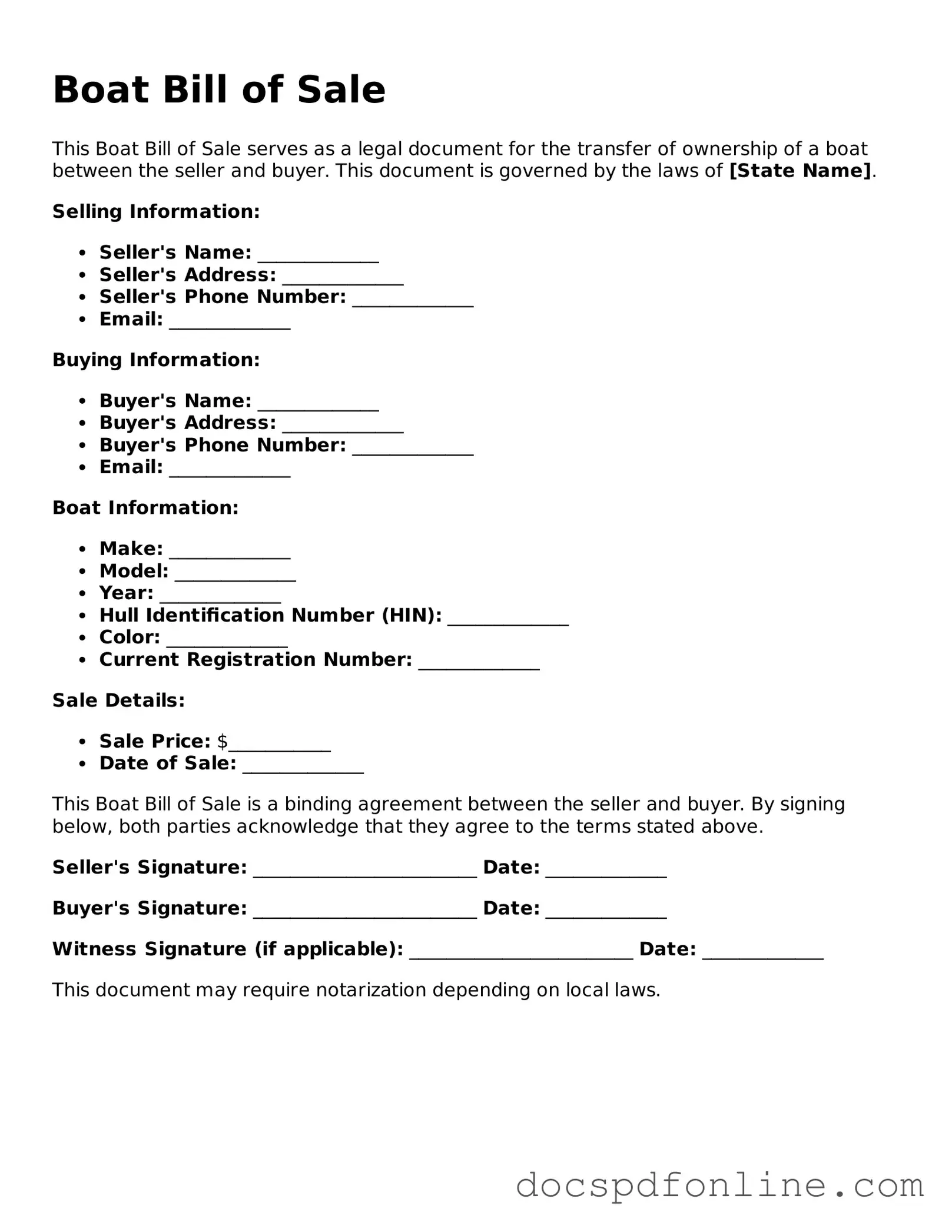Attorney-Approved Boat Bill of Sale Document
A Boat Bill of Sale is a legal document that transfers ownership of a boat from one person to another. This form serves as proof of the sale and includes important details about the boat and the parties involved. Understanding this document is essential for both buyers and sellers to ensure a smooth transaction.
Launch Editor Now

Attorney-Approved Boat Bill of Sale Document
Launch Editor Now
Save time — finish this form fast
Finish Boat Bill of Sale online — edit, save, download made easy.
Launch Editor Now
or
↓ PDF File
